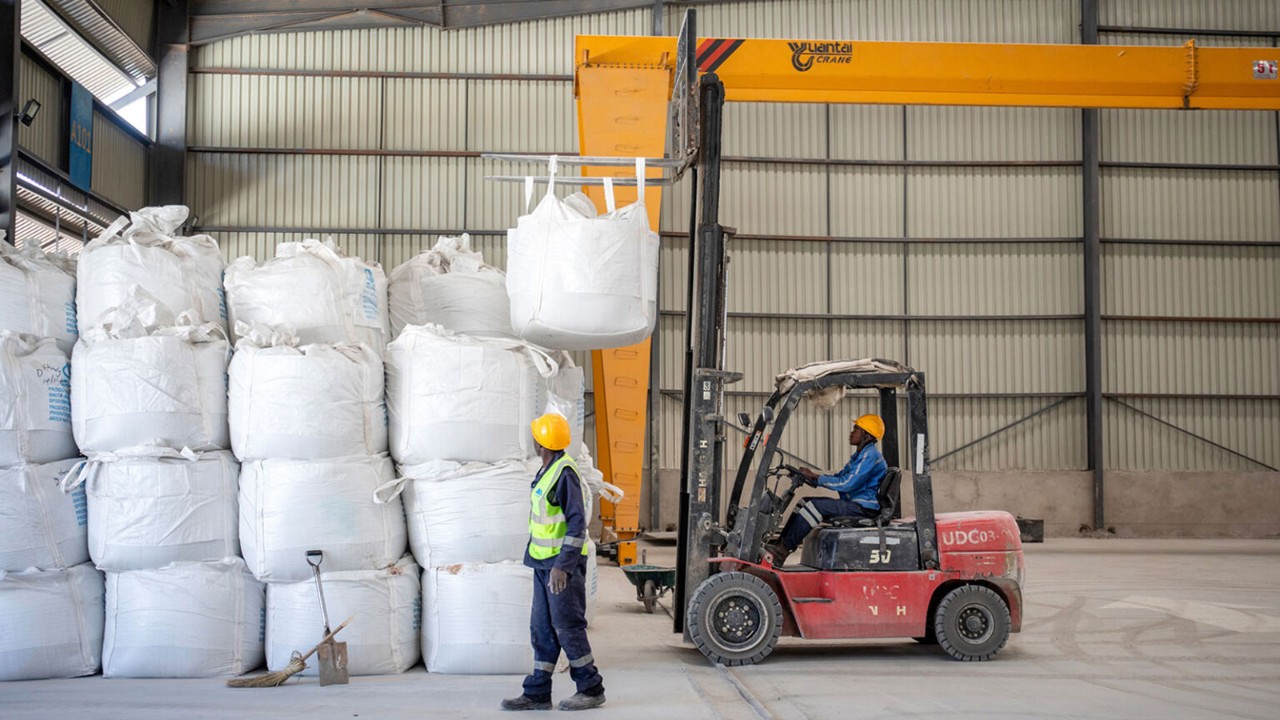
Every day we’re besieged with reports of the growing demand for minerals to be used in products ranging from electric vehicles to solar panels to smartphones. Africa, with as much as 30% of global deposits, sits firmly and tantalisingly at the epicentre. Democratic Republic of Congo (DRC) supplies more than 70% of the world’s cobalt, an essential component in lithium-ion batteries. Zimbabwe, boasting substantial lithium reserves, is attracting investments in cobalt refining, while Namibia, rich in rare earth elements, is also eyeing a stake in global technology supply chains. Nigeria, too, recently discovered significant lithium deposits.
In a perfect world, Africa’s mineral boom would catalyse sustainable growth and bring wealth and prosperity to a wide cross-section of society. However, concerns linger that once again it will instead devolve into another iteration of the resource curse.
Nigeria’s troubled history with oil, Angola’s struggles and even South Africa’s difficulties with precious metals illustrate clearly how natural resources can lead to economic distortions, corruption, inequality and weakened governance structures. The critical challenge for African governments and business leaders today is ensuring history does not repeat itself, and it’s a challenge we as accountants and finance professionals can help to tackle.
Essential elements
Corporate governance and strong institutions play a pivotal role. Transparent and effective frameworks are essential to preventing corruption, ensuring equitable wealth distribution and enabling sustained economic development.
ESG considerations are becoming non-negotiable
Robust environmental, social and governance (ESG) standards can ensure companies operating in these markets do so sustainably and ethically, protecting both investors and local communities. Indeed, ESG considerations are becoming non-negotiable, and are an area where we as finance specialists can make a difference.
Geopolitical competition adds further complexity to it all. Global powers, such as China, the US and European nations, are competing intensely for strategic influence and to secure access to critical minerals. China has significantly expanded its presence in Africa, especially in DRC and Zimbabwe, while the US and European nations increasingly seek alternative sources to reduce reliance on China-dominated supply chains. Such geopolitical dynamics present African nations with opportunities for favourable deals but also significant risks of exploitation and dependency.
Think local
Many African nations presently export raw materials, forfeiting substantial value addition that occurs elsewhere. There is a growing consciousness in Africa that, rather than export these raw ores, some value should be added, and processed or refined materials exported. This value addition would without doubt lead to larger gains for these nations by capturing greater economic value, creating jobs, enhancing skills and diversifying economies. Unfortunately, however, this remains more talk than action.
The reality of building local value-adding capacity is undoubtedly complex. It requires considerable capital investment, technology transfers, stable supplies and skilled human resources. But it can be done. A few African countries are making moves in this direction: Zimbabwe banned raw lithium exports in 2022, insisting on local beneficiation; Namibia followed suit in 2023, with a ban on unprocessed rare earth minerals; and Nigeria says it will also not allow exports of raw lithium. These initiatives, though baby steps, signal a crucial shift towards industrial development and economic sovereignty.
Balancing act
Caution is necessary, however. Protectionist policies must be carefully calibrated to avoid deterring foreign direct investment, which remains critical in unlocking the mineral sector’s potential. Governments must balance national interests with a supportive, transparent business environment that continues to attract global investors.
Accountants can help break the cycle of exploitation
Regional collaboration is also essential. The African Continental Free Trade Area offers a timely opportunity to integrate regional value chains, attract significant investment and bolster intra-African trade. Leveraging collective bargaining power could enhance Africa’s negotiating position globally, ensuring fairer deals and equitable outcomes from the global rush for critical minerals.
Factors that lead Africa’s resource-rich countries into making bad deals involving revenue volatility and inadequate capital for initial investment can be moderated by establishing strategic reserves and sovereign wealth funds, and by clever deal structuring. In addition, technology transfer initiatives and focused investments in education and skills development will help build local capacity and ensure long-term economic resilience.
Accountants, as guardians of transparency and integrity in financial reporting, will find their roles increasingly critical as they rigorously assess, measure and disclose ESG performance. By promoting accountability through transparent reporting, accountants can contribute significantly to breaking the cycle of exploitation and corruption. They can help Africa harness its mineral wealth to drive inclusive and lasting economic growth.
Ultimately, Africa stands at a crossroads. The continent now has a chance not just to supply the world but to shape a future built on fairness, resilience and genuine shared prosperity.



